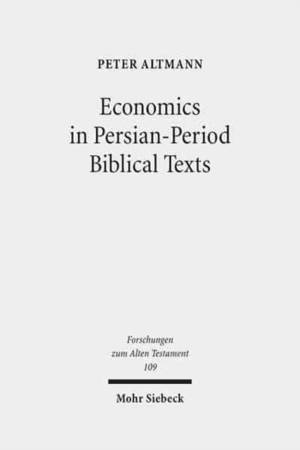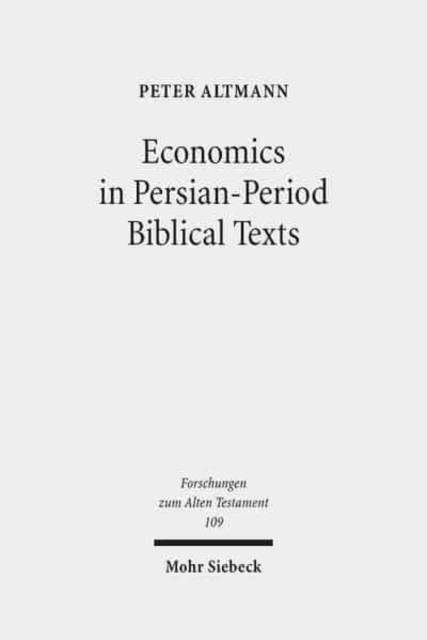
- Afhalen na 1 uur in een winkel met voorraad
- Gratis thuislevering in België vanaf € 30
- Ruim aanbod met 7 miljoen producten
- Afhalen na 1 uur in een winkel met voorraad
- Gratis thuislevering in België vanaf € 30
- Ruim aanbod met 7 miljoen producten
Zoeken
Economics in Persian-Period Biblical Texts
Their Interactions with Economic Developments in the Persian Period and Earlier Biblical Traditions
Peter Altmann
€ 146,45
+ 292 punten
Omschrijving
Large-scale economic change such as the rise of coinage occurred during the Persian-dominated centuries (6th-4th centuries BCE) in the Eastern Mediterranean and ancient Near East. How do the biblical texts of the time respond to such developments? In this study, Peter Altmann lays out foundational economic conceptions from the ancient Near East and earlier biblical traditions in order to show how Persian-period biblical texts build on these traditions to address the challenges of their day. Economic issues are central for how Ezra and Nehemiah approach the topics of temple building and of Judean self-understanding, and economics are also important for other Persian-period texts. Following significant interaction with the material culture and extra-biblical texts, the author devotes special attention to the ascendancy of economics and its theological and identity implications as structuring metaphors for divine action and human community in the Persian period.
Specificaties
Betrokkenen
- Auteur(s):
- Uitgeverij:
Inhoud
- Aantal bladzijden:
- 342
- Taal:
- Engels
- Reeks:
Eigenschappen
- Productcode (EAN):
- 9783161548130
- Verschijningsdatum:
- 1/10/2016
- Uitvoering:
- Hardcover
- Formaat:
- Genaaid
- Afmetingen:
- 168 mm x 231 mm
- Gewicht:
- 680 g

Alleen bij Standaard Boekhandel
+ 292 punten op je klantenkaart van Standaard Boekhandel
Beoordelingen
We publiceren alleen reviews die voldoen aan de voorwaarden voor reviews. Bekijk onze voorwaarden voor reviews.







